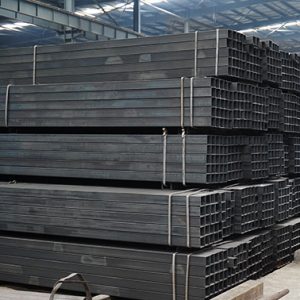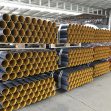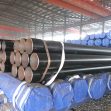The demand for steel pipe remained resilient
Despite facing challenges in the past year, the demand for steel pipe has remained resilient, driven by a wide range of applications in industries such as construction, oil and gas, and transportation. The COVID-19 pandemic had a significant impact on the global economy in 2020, causing widespread disruptions to supply chains and reducing demand for many goods and services. The steel industry was not immune to these challenges, as many steel pipe manufacturers were forced to temporarily shut down operations and reduce production in response to the pandemic.
However, the demand for steel pipe remained relatively strong throughout the year, driven by several factors. One of the main drivers was the construction industry, which continued to require large quantities of steel pipe for use in infrastructure projects such as bridges, tunnels, and pipelines. The oil and gas industry also remained a significant consumer of steel pipe, as it is used extensively in drilling operations and pipeline construction.

In addition to these traditional applications, the demand for steel pipe has also been driven by new and emerging technologies. For example, square steel pipe is increasingly being used in renewable energy applications such as wind turbines and solar panel installations. It is also being used in the construction of electric vehicle charging stations and other infrastructure to support the transition to a low-carbon economy.
Despite the resilience of demand, the steel pipe industry has also faced significant challenges in the past year. One of the main challenges has been the volatility of steel prices, which have been affected by a wide range of factors including fluctuations in demand, supply chain disruptions, and trade tensions. This has made it difficult for steel pipe producers to plan and manage their operations effectively, leading to uncertainty and volatility in the market.
Another challenge facing the steel pipe industry is the need to adapt to changing environmental regulations and consumer preferences. As the world becomes more focused on sustainability and reducing carbon emissions, there is increasing pressure on industries to adopt more environmentally friendly practices and products like rectangular hollow section. This has led to a growing demand for steel pipe that is produced using more sustainable and efficient methods, and that can be recycled or reused at the end of its life.
To meet these challenges, steel pipe producers are investing heavily in research and development, as well as in new technologies and processes that can help them improve efficiency, reduce costs of structural steel pipe, and improve the sustainability of their products. Many companies are also exploring new business models and partnerships to help them adapt to changing market conditions and meet the evolving needs of their customers.
Tel: +86 18202256900 Email: steel@fwssteel.com
Previous: The integration of the steel pipe industry
Next: Sustainable practices










